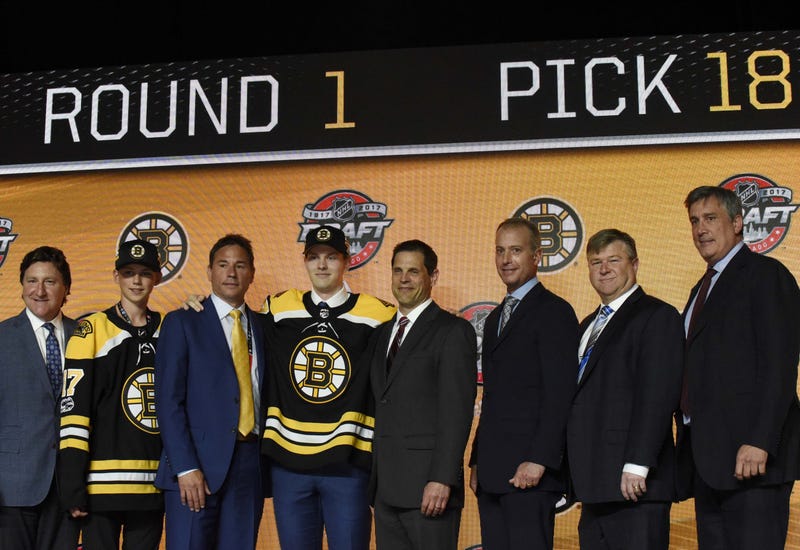
For the first time in five years, the Bruins do not own a first-round draft selection. General manager Don Sweeney might look to change that.
The 26th overall selection, Ryan Spooner, and Ryan Lindgren were sent to the Big Apple in return for Rick Nash. He donned the black and gold for a couple of months, yet they were marred by concussions. Nash is an unrestricted free agent on July 1.
With the NHL entry draft taking place in Dallas on Friday, Sweeney expects to be busy. He does not anticipate that acquiring a first-round draft choice will be an easy task.
"I’d had previous discussions, and whether or not those change between now and after interviews and such, we’ll have to find out in the next couple weeks," said Sweeney. "I do think it will be difficult, yeah, but there are teams with multiple picks."
There are six teams with multiple first-round selections, two of which are in the Atlantic division with the Bruins.
If the Bruins are tantalized by a prospect enough to trade into the first round, the club would need to relinquish veteran players. It is unlikely that Sweeney would deal prospects on the cusp of a roster spot in favor of younger talent that needs more time to develop.
David Backes' name has swirled around the rumor mill, yet he will be unable to fetch a premium return. Backes is owed $6 million for each of the next three seasons and has seen his game decline as he has aged. Backes will be 37 when his contract expires in 2021. In order to trade Backes, the Bruins will need to eat some of his contract and he has a limited no-movement clause in his contract.
David Krejci, who also owns a limited no-movement clause, counts for $7.25 million against the cap a year until 2021. If the Bruins traded Krejci, the team would not have a viable option as the team's second line center.
Torey Krug has been rumored to be on the trading block. He is required to submit a list of eight teams that he cannot be traded to as part of his modified no-trade clause, and the diminutive offensive blueliner is under contract for the past two seasons. One of these three players could be swapped in order to ease the strain of the salary cap on the Bruins. Combined with other assets, the Bruins could acquire an impact prospect.
The Bruins made a tremendous jump into the NHL's elite this past season and a productive offseason could cement the Bruins as a permanant member of the league's upper echelon. The draft is typically a time where teams are active to change their roster, so Sweeney has diligently tested the trade waters.
"There’s a sense that there will be some activity. I think in around the draft, there’s several teams with multiple picks, say in the top 50, so I think there will be some jockeying," Sweeney said. "We’ve got players that we may look at our earlier stage, so those all could be impactful things and decision in planning of your own player movement, plus outside player movement. But, there has been some chatter. "
There's an age discrepancy between vital contributors on the Bruins, for sure. Veterans like Patrice Bergeron, Brad Marchand, and Tuukka Rask are all on the wrong side of 30. Promising young contributors Charlie McAvoy, David Pastrnak, and Jake DeBrusk offer an extremely bright future due to their production in the early stages of their careers.
Do the Bruins choose to delay the Stanley Cup window and make a full-fledged push when the young core is in their prime and add to an already stoked prospect pool?
If the Bruins truly want to compete for a Stanley Cup, they will not trade for a first-round selection.
The price required to acquire a selection in the top 31 will be steep and the lack of assets the Bruins have to offer could handcuff the team. There will be plenty of potential impact performers available in the second round. Relinquishing NHL talent for cap relief and future considerations would be foolish with the crew they have now.
